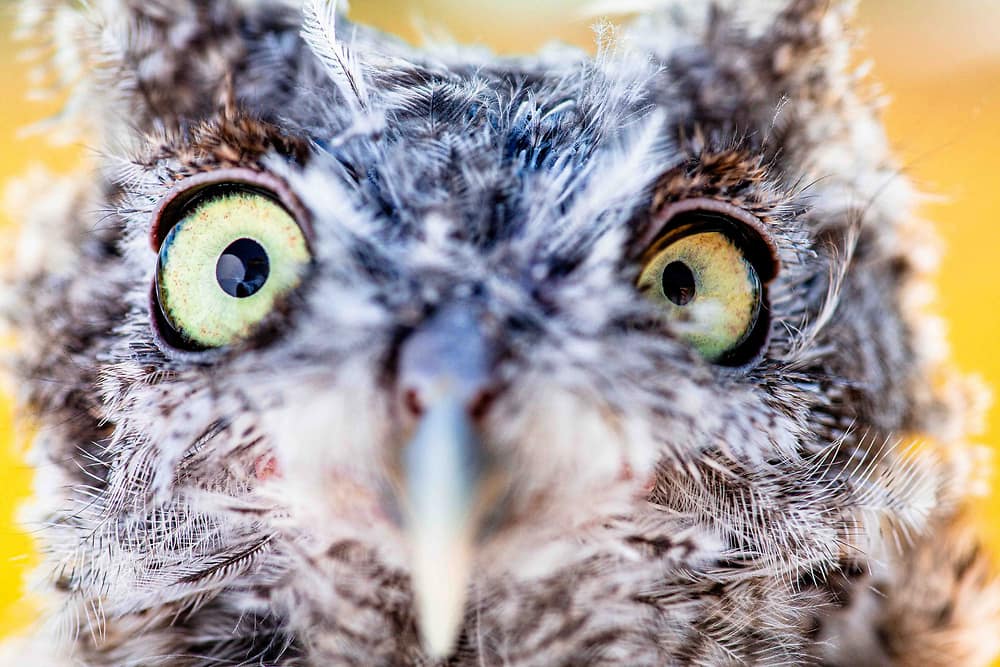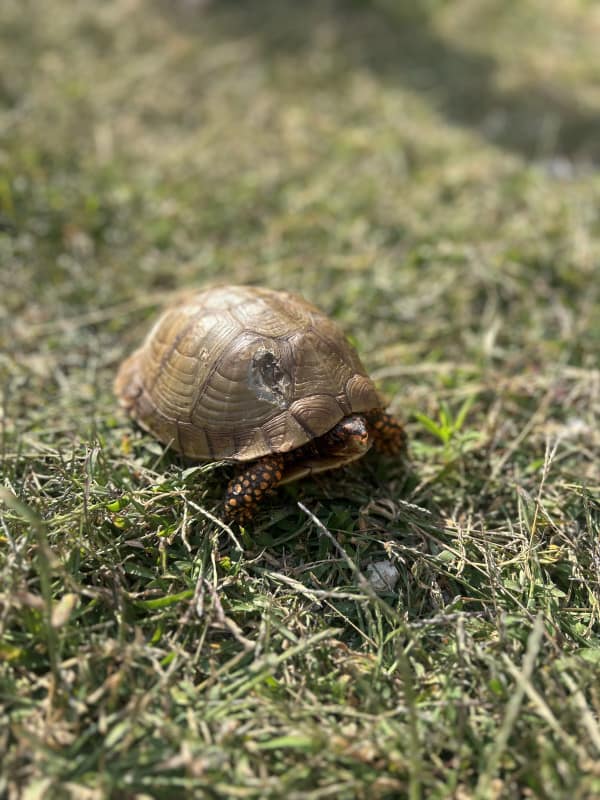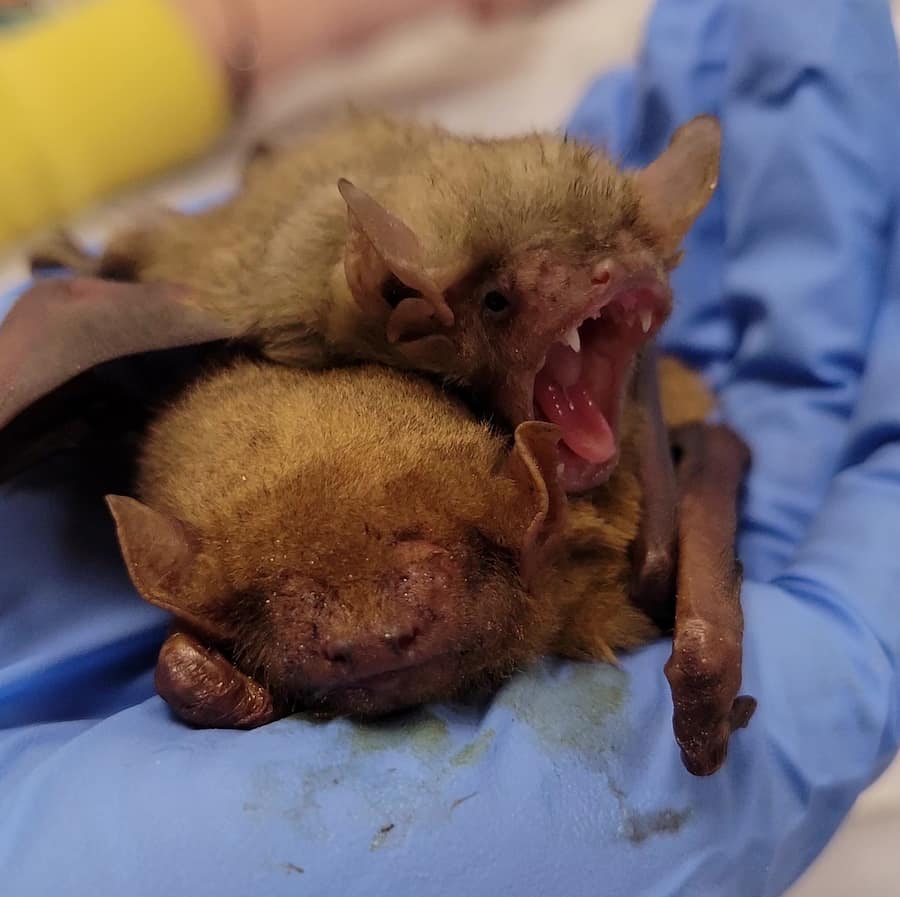We recently made the difficult decision to humanely euthanize Petunia, our resident Virginia opossum. Petunia was a huge part of our ambassador program at the Wildlife Medical Clinic, and she will be greatly missed.

Petunia’s journey with us started when she arrived at the Wildlife Medical Clinic from Champaign, Illinois, on May 18, 2022, as a joey (baby). A good Samaritan rescued her and her siblings after their mother was hit by a car. While her siblings were able to be transferred to a licensed wildlife rehabilitator to be released, Petunia stayed behind because she was smaller than her siblings and was missing her left eye. Based on her age, her missing eye was most likely a birth defect, not an injury; however, it left her vulnerable to predation and affected her depth perception, making her unlikely to survive in the wild. Petunia became one of our Wildlife Ambassadors to help educate the community about North America’s only native marsupial, the Virginia opossum.

At the Wildlife Medical Clinic, she was initially fed several times a day with formula, then transitioned onto solid food when she was old enough, all while being acclimated to spending time around humans. Petunia’s care team worked with her daily to ensure she was comfortable with her training and basic behaviors such as standing on the scale for weighing, wearing a harness and leash for programs, and some handling for veterinary checks and routine nail trims. Petunia was very comfortable at outreach events and did an excellent job of representing her wild counterparts and showing the importance of opossums in the environment.

In the summer of 2024, volunteers noticed Petunia was losing hair on her flanks and seemed to have developed a rash. After consulting with the University of Illinois Dermatology service, we determined she was likely suffering from allergic dermatitis and a secondary skin infection. While treating the infection was relatively straightforward through antibiotics, there were no existing recommendations on how to treat an opossum with allergies. In close concert with dermatology, we were able to determine the correct medical management plan for her remaining years. This plan allowed her to be comfortable and continue living her busy life as an ambassador animal.

While opossums in the wild rarely live more than two years, May 2025 marked her third year in our ambassador program. At this point, we had begun to see some early signs of arthritis, which is a common complication in aging opossums. After consulting with the Anesthesia service at the University of Illinois, we started her on additional medications and cold light laser therapy to slow this process. Unfortunately, by mid-summer, Petunia began experiencing significant reduction in her mobility and overall quality of life. She also started to develop an ulcer on her remaining eye; we sought advice from our Ophthalmology service to help determine treatment. All of these health concerns, and their progression led us to the difficult decision of humane euthanasia.
Petunia had a long and happy three and a half years with us where she had the pleasure of educating the public about her species and helping dispel common myths associated with Virginia opossums. She connected with many people along the way, from those that were able to see her on a program, to the dedicated faculty, staff, and students that collaborated to care for her. Petunia showed us how awesome opossums can be and how important they are in the environment. We at the WMC are grateful for the time we had with Petunia and all that she taught us. Her absence in the ambassador building is felt by all.
Written By: Current Wildlife Ambassador Care Coordinators, Lydia, Roxanne, Christie, and Kat.




